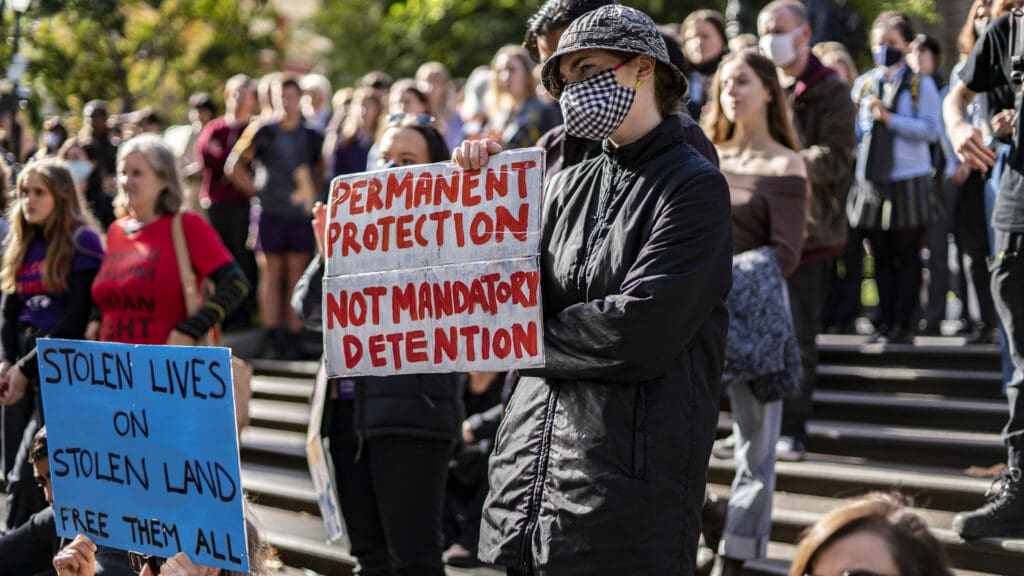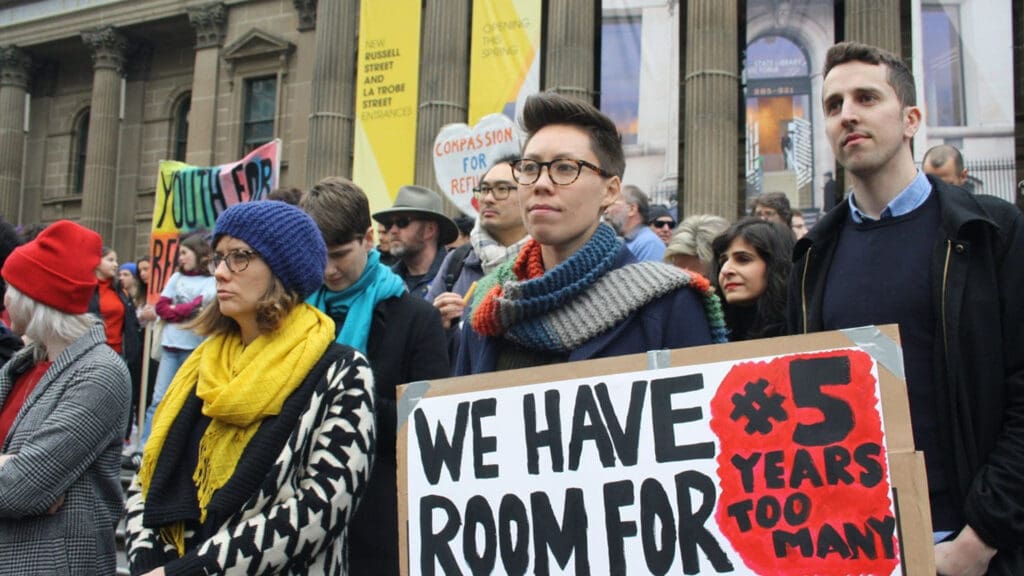Human Rights Measurement tracker puts the spotlight on human rights issues in Australia
The Australian Government must strengthen its commitment to human rights in its laws, policies and practices, the Human Rights Law Centre said today in response to new comprehensive data looking at the state of human rights in Australia.
The Human Rights Measurement Initiative, which tracks human rights performance across countries, has found that Australian governments are failing to uphold civil liberties and political freedoms, the rights of Aboriginal and Torres Strait Islander people and refugees and people seeking asylum.
The Initiative found many communities continue to suffer a range of rights violations in quality of life, safety from the state and empowerment. People especially vulnerable to arbitrary or political arrest include:
- Public protesters, and participants in union protests and strikes, particularly those protesting climate change
- Aboriginal and Torres Strait Islander people who are overrepresented in prisons and discriminated against by the police
- Journalists subjected to police harassment, especially if they criticise the government
- Asylum seekers and refugees experiencing up to several years of indefinite detention in onshore locations
Caitlin Reiger, CEO, Human Rights Law Centre, said:
“As a wealthy, stable democracy, Australia could lead the world on human rights, yet too often Australian governments fail to respect people’s human rights in critical areas. The evidence behind the Human Rights Measurement initiative shines a light on Australia’s treatment of people protesting, of Aboriginal and Torres Strait Islander people and refugees and people seeking asylum in particular. All people have the right to be treated with dignity and fairness, and rely on legal protections for their basic rights.
In addition to addressing these ongoing and alarming human rights issues, we call on the Albanese Government to implement an Australian Charter of Human Rights to ensure human rights are at the heart of all decision making.”
“The right to protest is fundamental to our democracy. Protest has been crucial to achieving many important social changes from First Nations land rights to the eight-hour workday. Yet across the country we have seen a range of draconian anti-protest laws set in place. The right to protest is a cornerstone of a robust civil society that holds government to account.
“Though the Australian Government signed the UN Declaration on the Rights of Indigenous Peoples in 2009, it has failed to implement its most fundamental article, that of Indigenous self-determination. The challenges facing Aboriginal communities can only be addressed by empowering Aboriginal people.
“Human rights provide a compass to guide governments in making the right decisions. If Australian governments uphold the human rights of all people, we will have stronger, healthier communities across the country. It’s past time for a Federal Charter of Human rights.”
View the Human Rights Measurement Initiative here.
Media contact:
Thomas Feng, Media and Communications Manager, 0431 285 275, thomas.feng@hrlc.org.au

Albanese Government must end twelve years of cruelty
12 years ago former Prime Minister Kevin Rudd made a cruel announcement that inflicted mandatory offshore detention on people who came to Australia seeking safety.
Read more
Accountability and justice must be delivered for Kumanjayi Walker’s family
NAAJA and the Human Rights Law Centre are supporting Kumanjayi Walker’s family’s calls for accountability and justice, after Coroner Elisabeth Armitage delivered her final report into Kumanjayi Walker’s death in Yuendumu this week.
Read more
Allan Government’s kneejerk law and order response will not make communities safer from racism and hate crimes
Racist and antisemitic attacks, such as the horrific arson attack on East Melbourne Hebrew Congregation have no place in our community. Every person has the right to practice their religion without fear of intimidation or vilification, and to be protected from acts of hate speech, racism and violence.
Read more



